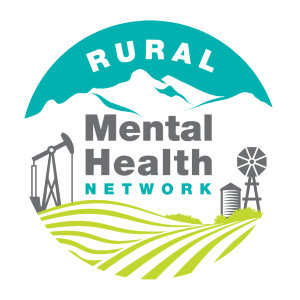A group of local individuals who come together to support mental health and wellness initiatives in their community. Action Teams are led or co-led by Community Animators and are made up of people with diverse experiences, interests, and strengths. These teams work collaboratively to identify priorities, design local actions, and put ideas into motion—always grounded in what matters most to the community.
Animators are a vital part of the Rural Mental Health Network (RMHN), a collaborative initiative hosted by the Canadian Mental Health Association Alberta Division and Centre for Suicide Prevention (CMHA AB + CSP). This is a volunteer role that invites community members to step into leadership by guiding local mental health action from the ground up. Animators are trained to guide communities in creating action plans and finding solutions that work for everyone. As facilitative leaders—not managers or experts—they inspire and empower their communities. Their role is to foster inclusion, amplify local voices, and support grassroots action to build mentally healthy and connected rural communities.
A strengths-based approach to community change that focuses on what’s strong, not what’s wrong. ABCD starts by identifying the skills, knowledge, relationships, and resources already present in the community—and then builds on those assets to drive collective action. It values local leadership, connection, and capacity as the foundation for meaningful change.
Backbone organizations are local community-based organizations that provide varying levels of support to Animators. A Non-Profit, Registered Charity, or an organization affiliated with a local government (i.e., FCSS Office, First Nation, Métis Settlement, Municipality, Municipal District, or Special Area) can take on this role as long as it is a good fit for the community. Backbone Organizations may work with multiple communities and can either identify interested individuals to become Animators or be approached by Animators seeking support. The approach taken will depend on the specific circumstances and connections within the community and between the Animator and organization. It is possible for multiple communities within a municipality or region to have their own Animators, and the choice of Backbone Organization may vary from community to community.
We encourage Backbone Organizations to provide as much support to the Animator and Action Team as necessary. As local experts and connectors, community-based organizations can play a valuable role in fostering relationships and amplifying community efforts.
A one-time funding stream provided to Animators via their Backbone Organization after training. It helps kick-start local mental health initiatives—such as gatherings, storytelling events, or awareness campaigns.
Each community’s eligibility is determined by RMHN staff based on need, readiness, and alignment with network priorities.
Strategies and actions that are shaped and led by the community itself. Instead of bringing in outside solutions, community-driven approaches start by listening to local voices, understanding lived experience, and building on the community’s own strengths and priorities. These approaches value inclusion, equity, and shared ownership of both the process and the outcomes.
Additional funding opportunities (beyond the Community Discovery Fund) are available to Backbone Organizations and Action Teams. These grants support the implementation, expansion, or evaluation of locally-driven mental health action plans.
The tools and techniques used to guide group conversations in ways that are inclusive, respectful, and productive. Good facilitators create safe spaces, encourage active listening, manage group dynamics, and help people move from ideas to action. These skills are essential for Animators, who lead dialogue without controlling the outcome and help groups navigate complex or sensitive topics.
Prevention-focused efforts that address the root causes of mental health challenges—such as social isolation, poverty, stigma, and lack of access to resources—before they become crises. Upstream approaches aim to improve overall wellbeing by strengthening protective factors and creating conditions that support mental health for all, especially through community and systemic change.
